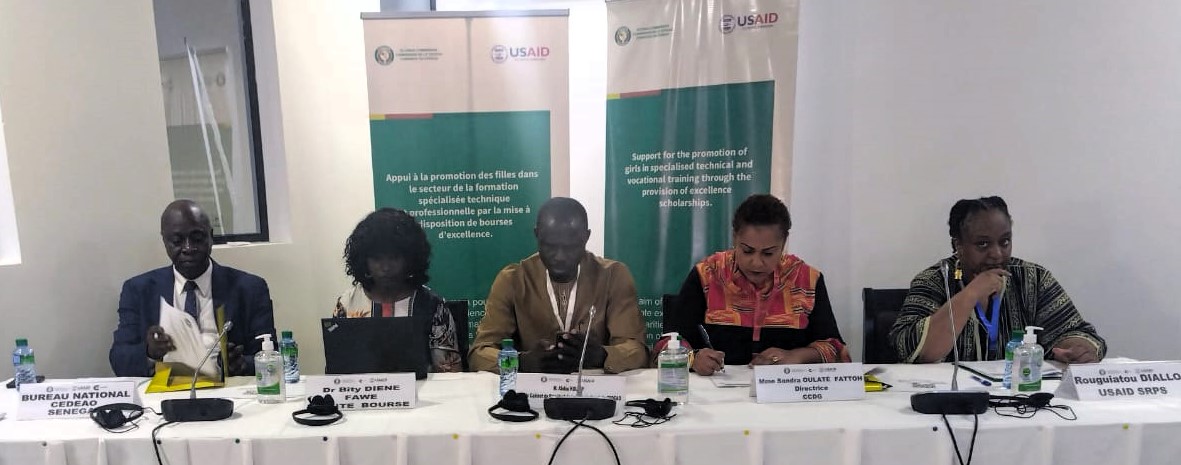The ECOWAS Center for Gender Development (CCDG) launched this Tuesday, June 04, 2024 in Saly, Republic of Senegal, in partnership with the United States Agency for International Development (USAID), the 2nd edition of the meeting of the regional coordination committees of its flagship programs implemented in the 15 ECOWAS member states.
This meeting, whose aim is to exchange views on the status of program implementation, is the first stage in a series of activities, supported financially and technically by USAID’s West Africa office, a strategic partner in the implementation of CCDG programs in member states.
The opening ceremony of the meeting was marked by a word of welcome from the ECOWAS national office and a message from the Director of the CCDG, who recalled the objective pursued by the Center in the implementation of its three main programs, which is to create an enabling environment for gender equality and the economic and social empowerment of women and girls. More specifically, the CCDG aims to ensure its repositioning as the agency in charge of implementing and monitoring the ECOWAS gender policy.
The Director of the CCDG took the opportunity to express her special thanks to USAID, which in addition to its highly appreciated financial contribution, mobilized its entire team to support the CCDG in organizing this activity.
In her opening speech, Professor Fatou SOW SARR, ECOWAS Commissioner for Human Development and Social Affairs, emphasized the participatory and inclusive approach adopted by the CCDG, which opted for the second meeting of the regional program coordination committees, involving all stakeholders to discuss the state of program implementation in beneficiary member states for the year 2023.
According to the Commissioner, this inclusive and participatory approach by the CCDG makes it possible to capitalize on best practices, to detect shortcomings observed in implementation at both member state and ECOWAS level, in order to improve good governance and transparency in the technical and financial management of programs.

